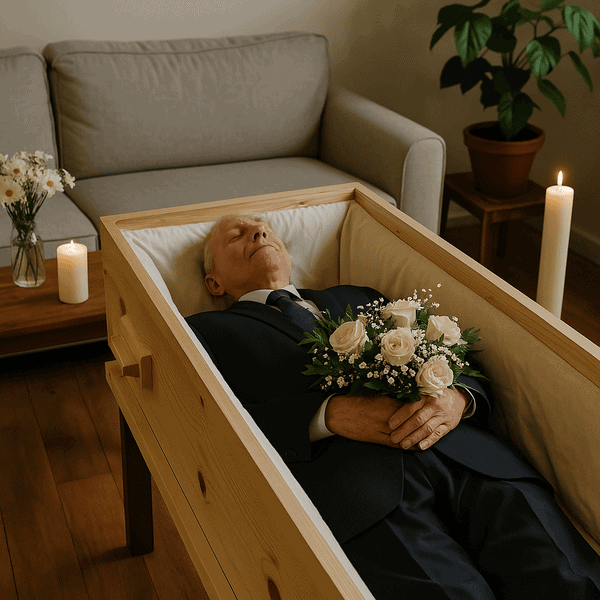Restful Sleep Despite The Grief

Covering Costs Of A Terminal Cancer Diagnosis
September 19, 2018
Planning for Less Stress When Supporting Terminally Ill Loved One
January 10, 2019Restful Sleep Despite the Grief: Overcoming Insomnia after Losing a Loved One
Mental health professionals advise bereaved individuals to allow grief to run its course, that it’s important to go through the process, painful though it is. Grief is a cathartic experience that allows you to come to terms with powerful feelings and the fact life will be different now that a loved one is gone. However, because the death of someone close can be so profoundly painful and traumatic, some people suffer physical manifestations that negatively affect their physical and mental well-being.
It’s not uncommon for a bereaved person to suffer from insomnia or some other form of sleep disruption. Sleep disruption can damage your immune system and leave you feeling disoriented and unable to concentrate during the day. If grief is robbing you of healthy, restful sleep, in addition to consulting your doctor, try the following tips aimed at helping you recover this important aspect of your overall health.
Stick to a routine
Where sleep is concerned, establishing a regular daily rhythm your body can get used to is paramount. Your system is attuned to a natural, waking-sleeping cycle—sticking to a nightly bedtime routine can help you restore that cycle. Eat light, healthful dinners, don’t ingest caffeine after dinner, don’t smoke, and avoid alcohol before bedtime. Incorporate restful activities into your nightly regimen, things like reading, listening to soothing music, watching a favorite movie, or taking a stroll with the dog after dinner. Enjoy a cup of tea or a glass of warm milk after a bath. Anything that leaves you feeling relaxed leading up to bedtime is helpful because relaxation is conducive to sleep.
Redecorate
Sometimes it’s necessary to make a fresh start by altering one’s physical environment after the death of a spouse. The bedroom is an obvious place to begin. This can be as simple as rearranging the furniture or as involved as repainting the walls and getting a new bed and furniture. If you decide to start fresh, make a clean sweep of the space and donate or throw out anything belonging to your loved one that isn’t needed or wanted. Repaint with a soft, soothing color such as a pastel or earth tone, or go with a dark shade that’s particularly conducive to restful sleep. Consider getting new window treatments that allow natural light in during the day, but which can be easily closed at night to prevent incidental light from getting through.
Just breathe
People suffering from insomnia often blame it on an inability to keep their thoughts from racing. It’s understandable for someone experiencing grief, which can leave you wondering whether you should have done or said more to a loved one while you still had the chance. And it’s not unusual to have guilty feelings. Turning those thoughts off at bedtime is a matter of distracting your brain, of turning it inward and focusing on peaceful relaxation.
Deep breathing is an excellent way to get you away from those all-consuming thoughts and feelings. Focusing on your breath can be tremendously relaxing. There are different breathing techniques to try, including alternate nostril breathing, 4-7-8 breathing, Ujjayi, and complete breathing. It might be worthwhile to take a meditation or yoga class where you can learn the best techniques for you from an expert. If light or visual distractions are an issue at bedtime, consider wearing a sleep mask at night.
Some people make a conscious effort to incorporate Feng Shui in a bedroom and living space after the death of a spouse. You can still honor and remember a lost loved one by giving your home a new look and feel—especially if it helps you relax and get to sleep at night.
Courtesy of Pixabay.com.



1 Comment
[…] Grief is a distressing experience that creates painful physical and emotional symptoms, such as anxiety, headaches, low energy, digestive issues, and sleep problems. The latter can be especially pervasive for those who are grieving the loss of a spouse or partner. Sleeping without them can be heartbreaking and make it very difficult to get quality sleep despite the grief. […]